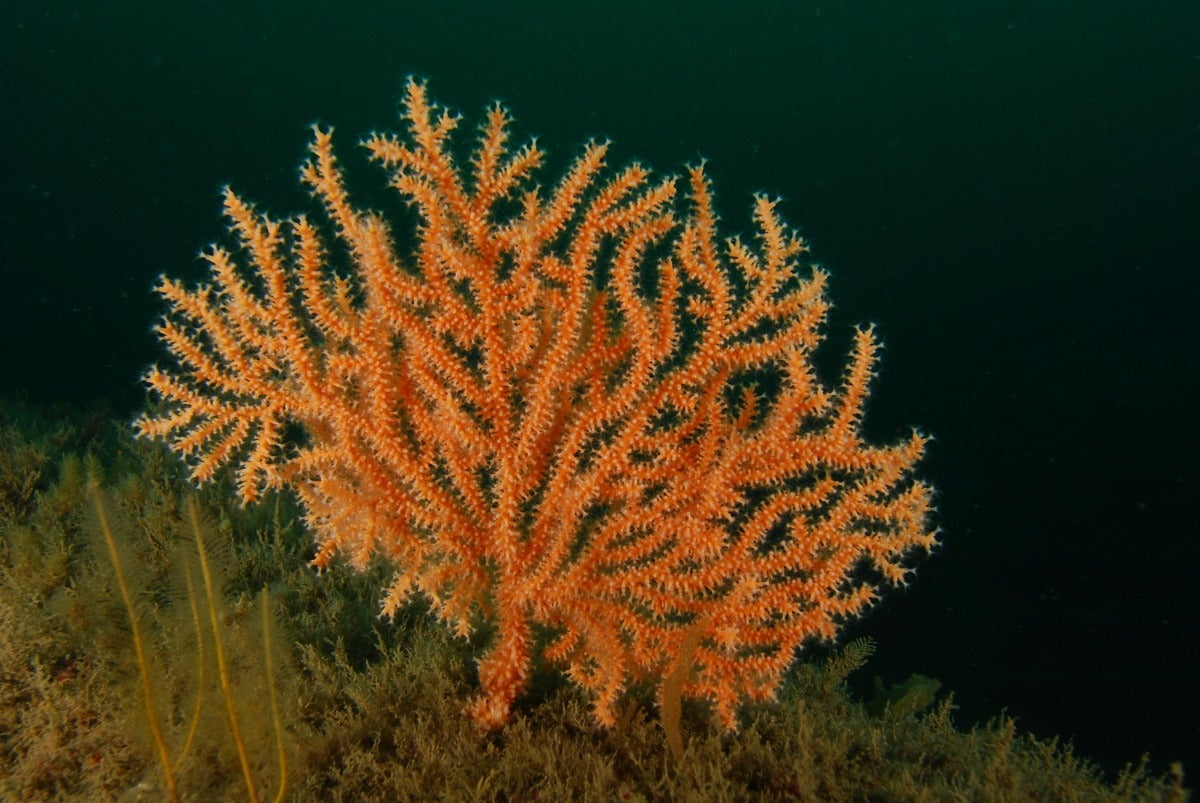Vulnerable pink coral will push up UK coastline as climate warms – research
The pink sea fan is likely to be a short-term beneficiary of global warming, researchers found, as the water around the British Isles heats up.

A vulnerable species of coral will become more common in UK waters by the end of the century as global warming drives up temperatures, according to new research.
The pink sea fan is found in shallow waters from the western Mediterranean stretching up to the north-west of Ireland, south-west England and Wales.
Researchers at the University of Exeter modelled which coastlines might become more hospitable to the coral as waters warm, based on greenhouse gas emissions at the high end of current predictions.
In a rapidly changing mosaic of habitats, some species – typically those favouring warmer conditions – may come out as short-term ‘winners’
They found that by the last two decades of this century, the pink sea fan is likely to push northwards into new sites in the British Isles making it a short term “winner” of the climate crisis.
The modelling covered the Bay of Biscay, northern Spain, the British Isles and southern Norway.
In future it could be used to identify waters in need of extra environmental protection, the researchers said.
The soft coral is classified as “vulnerable” worldwide by the Internal Union for Conservation on Nature, and is at particular risk from scallop dredging.
Its slow growth rate means it also struggles to recover from physical disturbance.
The pink sea fan is listed as a species of principal importance in England and Wales under the Natural England and the Commission for Rural Communities Act 2006.
It was given the listing because of its rarity, and the fact the corals can form dense “forests” – boosting biodiversity by providing valuable habitat for other creatures living close to the sea bed.
The health of pink sea fan forests can also be a useful indicator of the wider health of the marine ecosystem, the researchers said.
Dr Jamie Stevens, an evolutionary biologist at the University of Exeter, said: “This research highlights the complex effects of climate change on marine ecosystems, in which the ranges of some species respond to warming by shifting pole-wards.
“In a rapidly changing mosaic of habitats, some species – typically those favouring warmer conditions – may come out as short-term ‘winners’.
“How long these species can continue to expand and benefit in the face of accelerated warming remains to be seen.”
Dr Tom Jenkins, also of the University of Exeter, said it was not yet clear why pink sea fans have not yet colonised greater areas of the coast.
“Possible barriers include insufficient dispersal of their larvae and high competition between species for space and resources,” he said.
He added: “We also found that existing habitat across south-west Britain, the Channel Islands and north-west France is predicted to remain suitable for this species over the next 60-80 years.”
The paper, Predicting habitat suitability and range shifts under projected climate change for two octocorals in the north-east Atlantic, is published in the journal PeerJ.
Bookmark popover
Removed from bookmarks